Reserve Bank could raise interest rates as early as May after inflation climbs to 3.8%
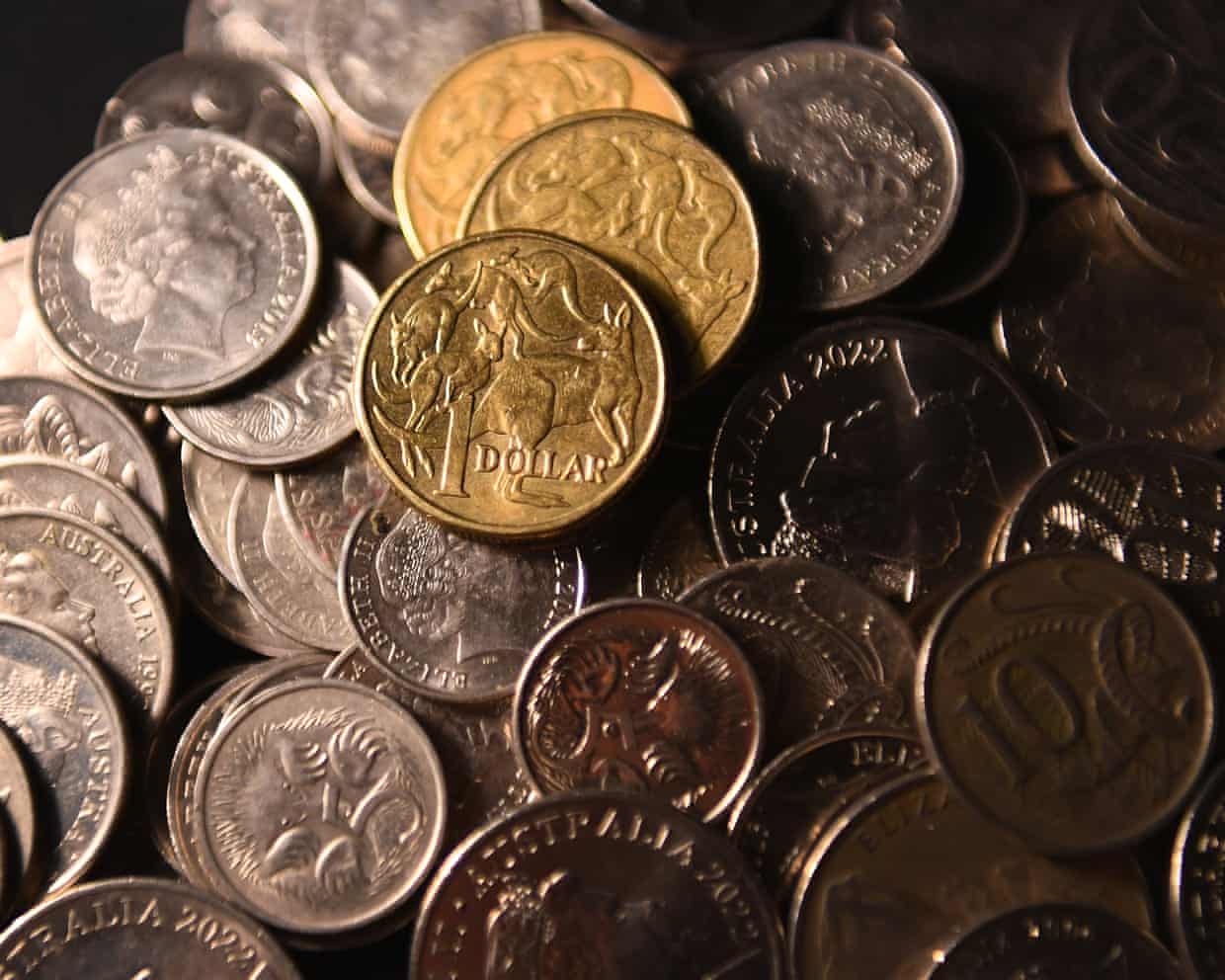
The Reserve Bank of Australia could be forced to hike interest rates as early as May, economists say, after inflation climbed to 3.8% in the year to October, from 3.6% in the month before.The latest bad news on cost of living was accompanied by a shocking 37% annual jump in power bills as generous state government subsidies rolled off, figures from the Australian Bureau of Statistics revealed.As the Coalition again used parliamentary question time to attack the government for its record on electricity prices, Jim Chalmers flagged he could announce further energy bill relief for households in the upcoming midyear budget.
“We’ll take a decision about electricity rebates in the context of finalising that midyear budget update,” the treasurer said.The update is due around 17 December.Sign up: AU Breaking News emailInflation was now at its highest since mid-2024, and had performed a major U-turn after it dropped as low as 1.9% in June – when energy bill rebates flattered the underlying inflation picture.Childcare costs climbed 11% through the year, as providers passed on higher wage and operating costs, the ABS said, while medical and hospital services were up 5.
1%,Soaring gold and silver prices left the price of accessories 12% up on a year earlier,David Gruen, the head of the ABS, told Guardian Australia that the year-on-year increase in power costs had peaked in October, which suggested inflation could ease through the rest of this year and into the next,“In year-ended terms, this is the biggest increase” in the monthly electricity index, he said,Still, analysts said the ABS’s first complete monthly consumer price index confirmed a sharp upswing in broader price pressures that devastated hopes for more RBA interest rate cuts.
Underlying inflation, which removes the impact of large, temporary price swings – like in electricity prices – lifted from 3.2% in September to 3.3% in the year to October.Sign up to Breaking News AustraliaGet the most important news as it breaksafter newsletter promotionBarrenjoey’s chief economist, Jo Masters, said “we are seeing more inflation persistence than we had expected”, and predicted the next move from the Reserve Bank would be to hike rates at its May board meeting – and then again in August.In particular, “housing inflation is simply running too fast to be consistent with inflation at target,” Masters told clients, pointing to re-accelerating rents (up 4.
2% annually) and construction costs.While “clearly the bar to rate hikes is very high”, Masters said “there is the potential that the (RBA) board acts as soon as February”.Economists at UBS agreed that inflation was likely to remain above 3% over the coming year, and that the RBA would need to respond with a rate hike in late 2026, with another in early 2027.With cost of living still the number one issue facing voters, Chalmers left the door open for household energy bill rebates to be extended beyond the end of this year, saying the government would come to a decision in “the next few weeks”.“We’ve been very clear and very upfront for some time now – this electricity bill relief is really important.
It is taking some of the edge off power prices for families and pensioners and people in our communities right around Australia.”The March budget extended the commonwealth’s energy bill relief fund for six months, which gave another $150 to all households and about 1 million small businesses, split into two quarterly instalments.The opposition leader, Sussan Ley, repeatedly dodged questions in a Wednesday morning interview over whether the Coalition supported extending the power bill subsidies.
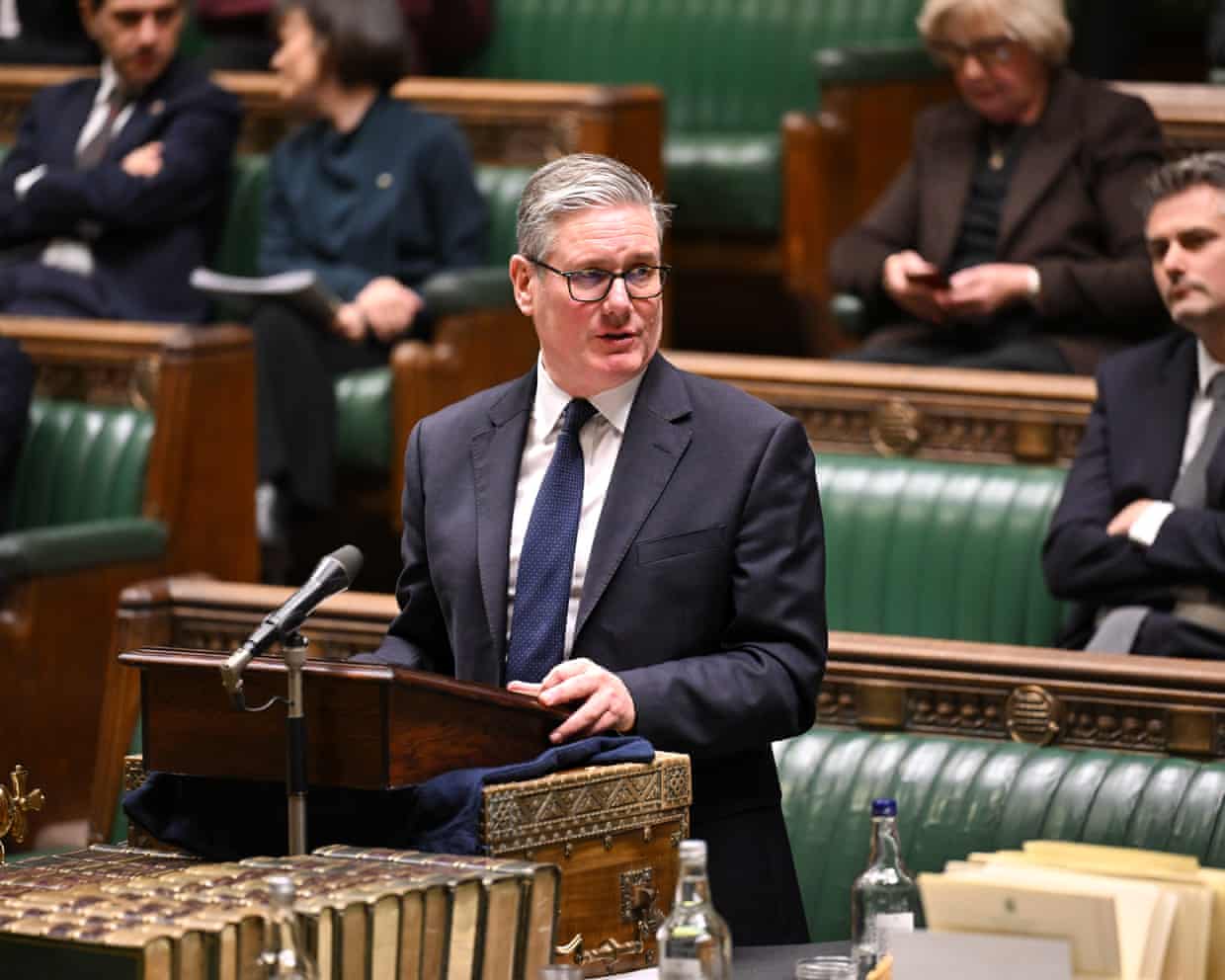
‘Where’s Nige?’ Reform leader skips Commons statement on Ukraine, leaving Tice to face pile-on | John Crace
Just occasionally the House of Commons is more remarkable for who isn’t in the chamber than for who is. So it was striking that Nigel Farage was absent for Keir Starmer’s statement on the G20 summit and the Ukraine peace process.You might have thought the man who has spent the last six months telling anyone who will listen that he will be the next prime minister might take some interest in geopolitics and Britain’s global standing. Apparently not. Only Richard Tice from Reform stayed for the session

‘I didn’t start it’: Starmer apologises for ‘six seven’ uproar during school visit
It has become the bane of many parents’ and teachers’ existence: children bleating out “six seven” for apparently no reason.So parents of pupils at Welland Academy in Peterborough will be unimpressed to discover that none other than the prime minister was encouraging their youngsters in the viral phenomenon.In a clip posted to Keir Starmer’s Instagram account, the prime minister can be seen reading with a young girl who points out she is on “page six-seven”, prompting him to start the dance move – a juggling like motion – that accompanies the infuriating craze.Before long, other members of the class are joining in and laughing hysterically.“That was a bit wild,” Starmer says as he exits the classroom, before he is swiftly reprimanded by the school’s headteacher, Jo Anderson

How Lord Dannatt used his peerage to open doors for business interests
The flowers and hamper that arrived at the Tower of London had been sent by a small energy company based in Sierra Leone. They were a gift to Richard Dannatt, the former head of the British army, who a few months earlier had introduced the company’s executives to the minister for Africa. It was a move they hoped would smooth the way for the fledgling company’s grand plans to build a £500m hydroelectric dam.With support from the UK government, the company had a better chance of getting the dam built. The dam, they said, would bring much-needed cheap electricity to many people in Sierra Leone
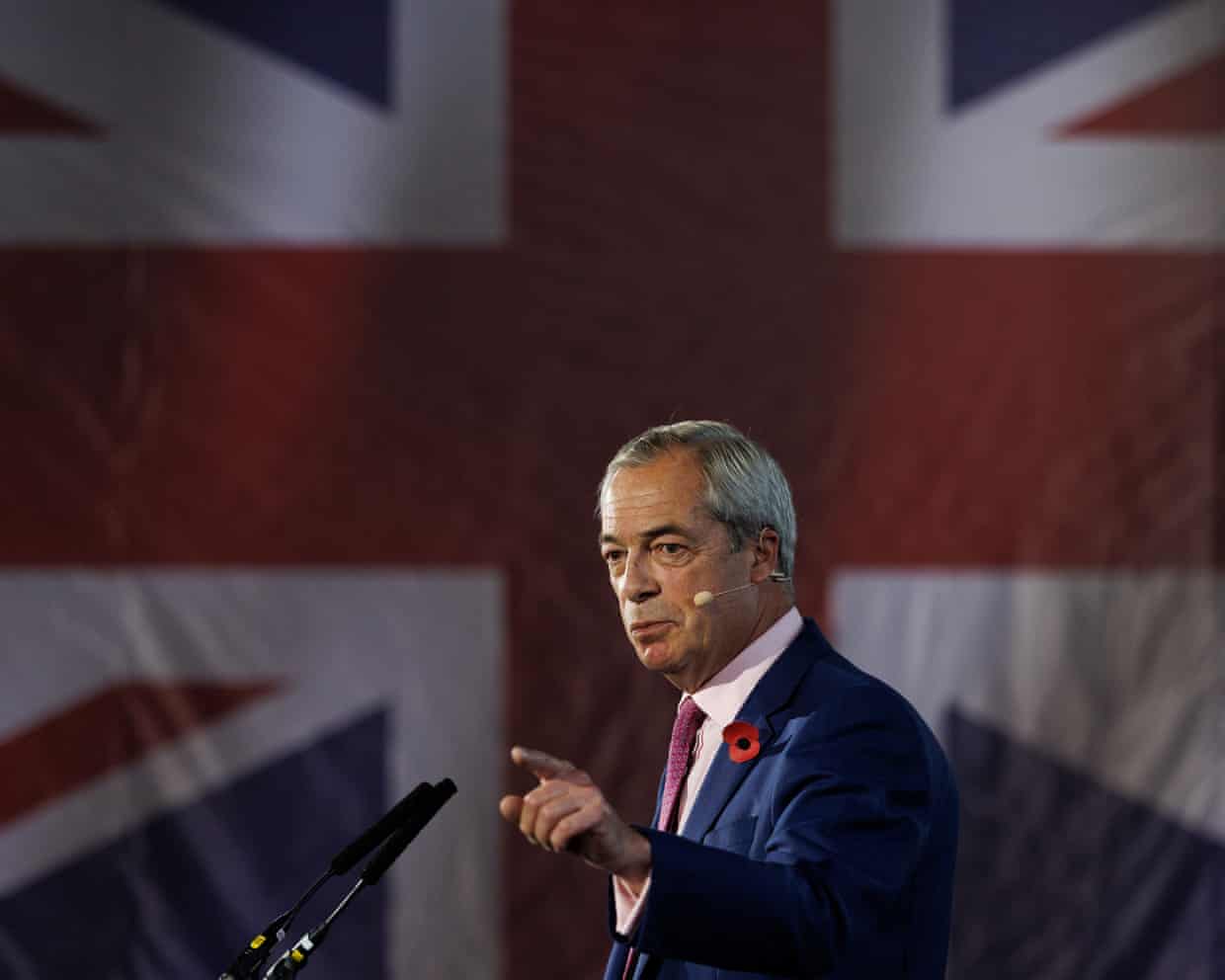
Reform’s ‘Trumpian’ legal threats hint at more aggressive approach to media
“It was Trumpian,” said Mark Mansfield, editor and CEO of Nation.Cymru, a small English-language Welsh news service. “It has perhaps given us a flavour of how a Reform UK government would behave towards the media.”Mansfield is referring to what he described as an attempt by a figure at Nigel Farage’s Reform UK party to “bully” his publication, but he believes a wider lesson might be learned.On 12 November, Nation

Nigel Farage’s shifting answers on school-days racism claims – a timeline
Nigel Farage’s response to allegations of teenage racism during his time at Dulwich college have ranged from vehement at times and rather more nuanced at others.Here is what he has said.After Channel 4 reporter Michael Crick revealed a June 1981 letter written by a teacher about Farage during his time in Dulwich referring to him as “racist” and “fascist” or “neo-fascist”, Crick tracked down Farage.Farage said: “Of course I said some ridiculous things that upset them.” Crick asked him if these were “racist things”
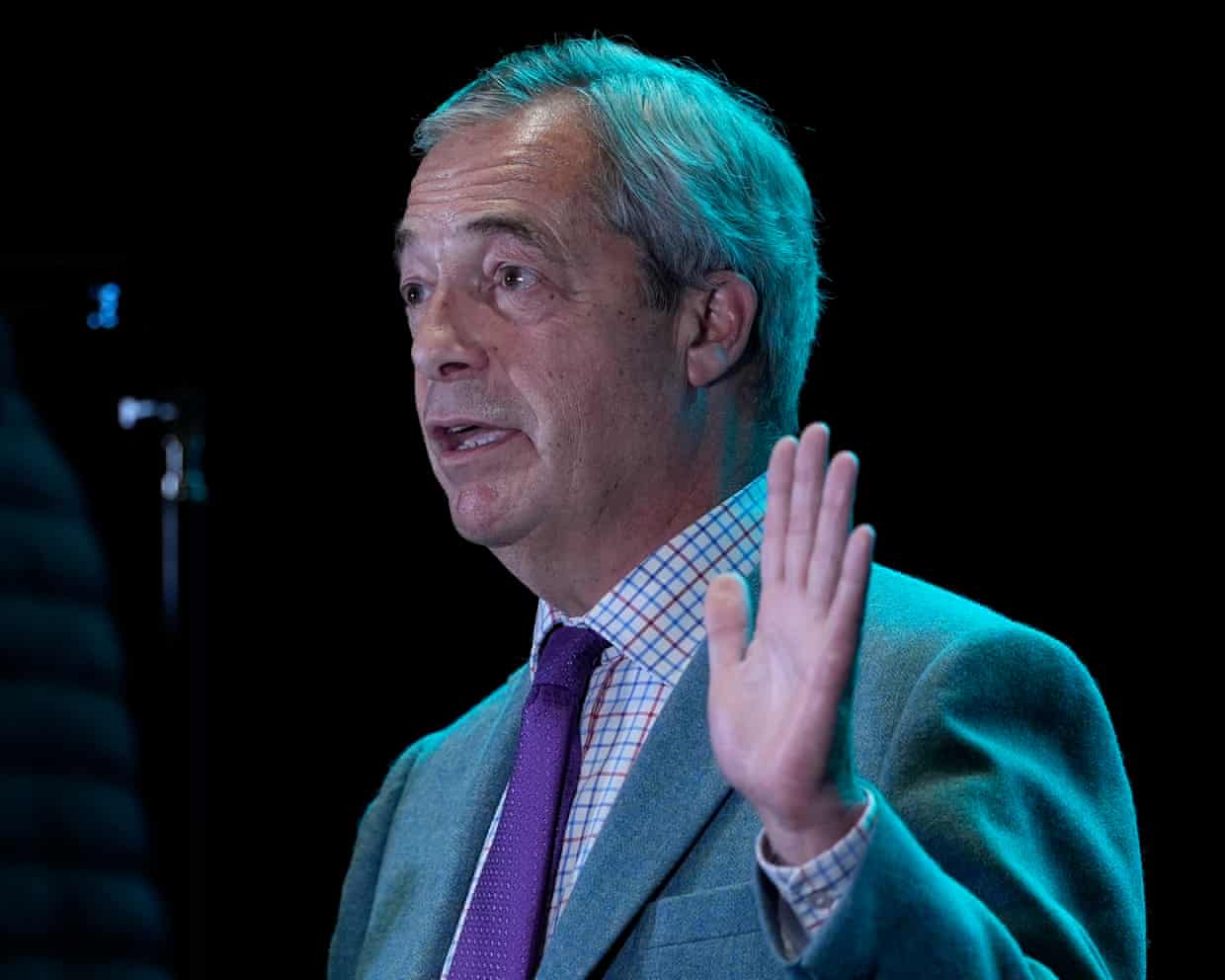
Nigel Farage responds to racism claims saying he never ‘tried to hurt anybody’
Nigel Farage has broken his silence nearly a week after he was accused by about 20 people of racism and antisemitism as a teenager, by saying he “never directly, really tried to go and hurt anybody”.His remarks came after the publication of a detailed investigation by the Guardian in which many of his school contemporaries claimed to be victims of, or witnesses to, repeated incidents of deeply offensive behaviour.The Reform party leader’s aides emphatically denied the allegations, saying that any “suggestion that Mr Farage ever engaged in, condoned, or led racist or antisemitic behaviour is categorically denied”.In a broadcast interview on Monday, Farage appeared to give a more nuanced response when he was asked if he had racially abused fellow pupils at school.He replied: “No, this is 49 years ago by the way, 49 years ago

The latest inflation figures offer no joy – except to the gas producers whose windfall profits remain largely untouched | Greg Jericho
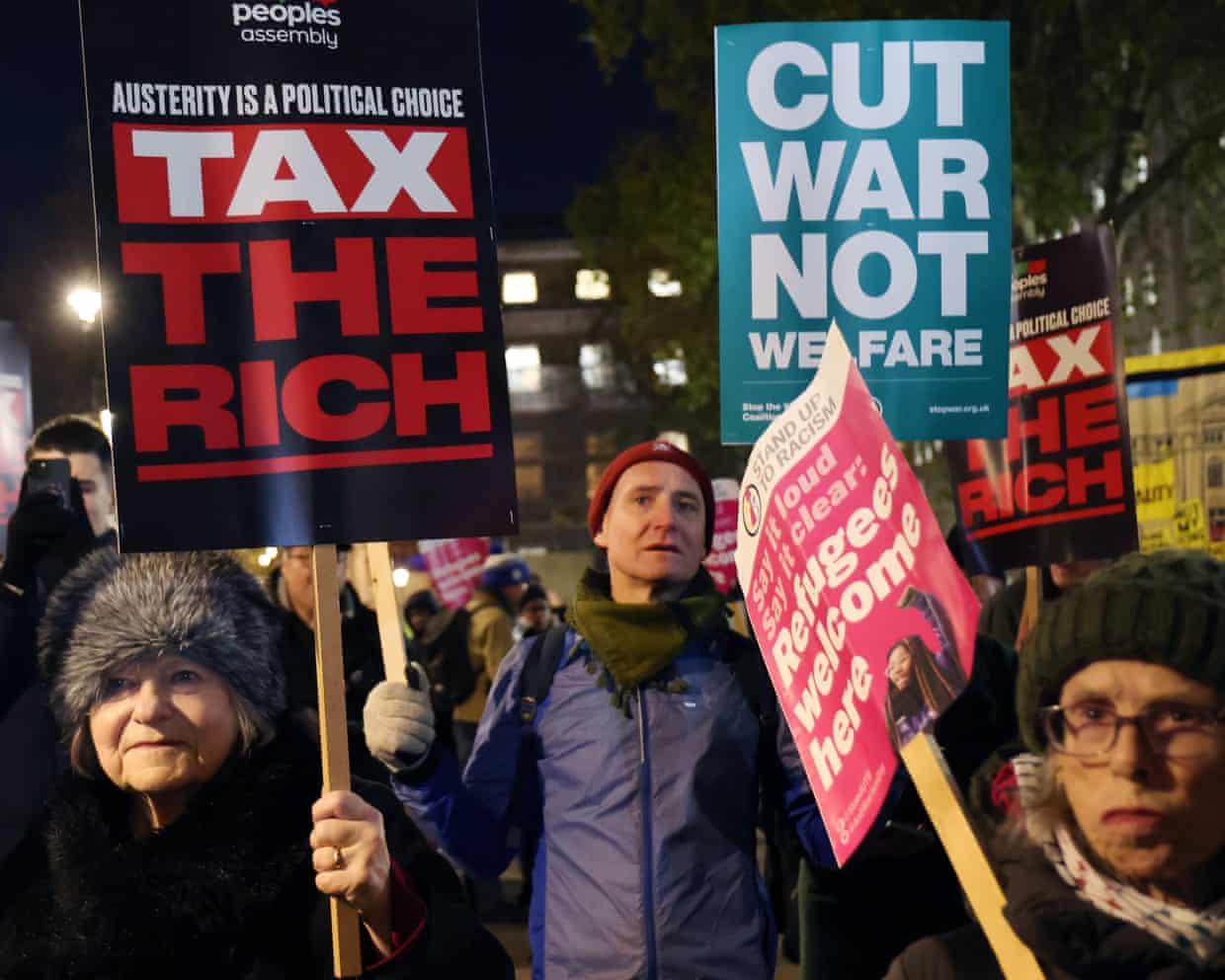
UK borrowing costs fall after early release of budget forecasts – business live
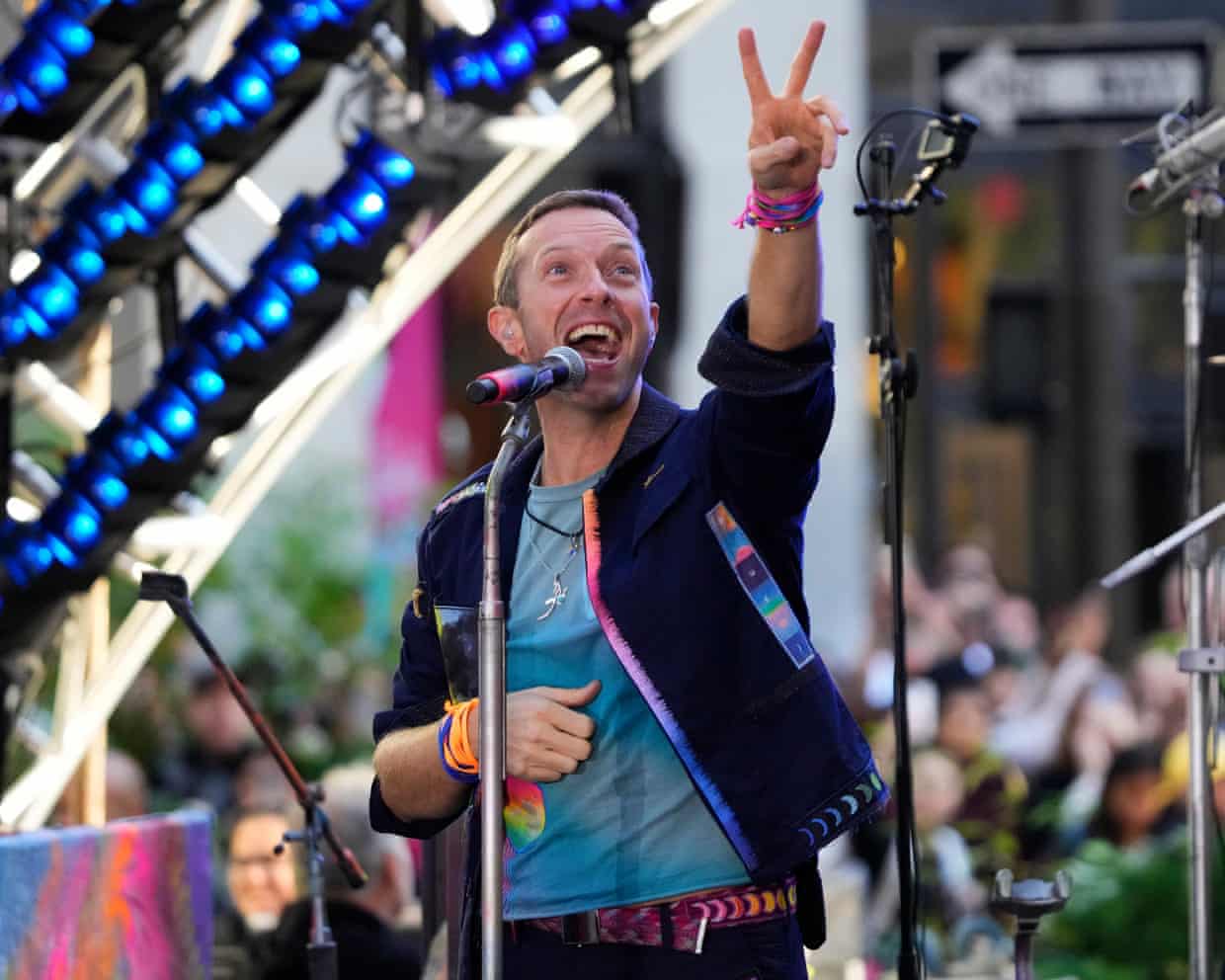
Warner Music signs deal with AI song generator Suno after settling lawsuit
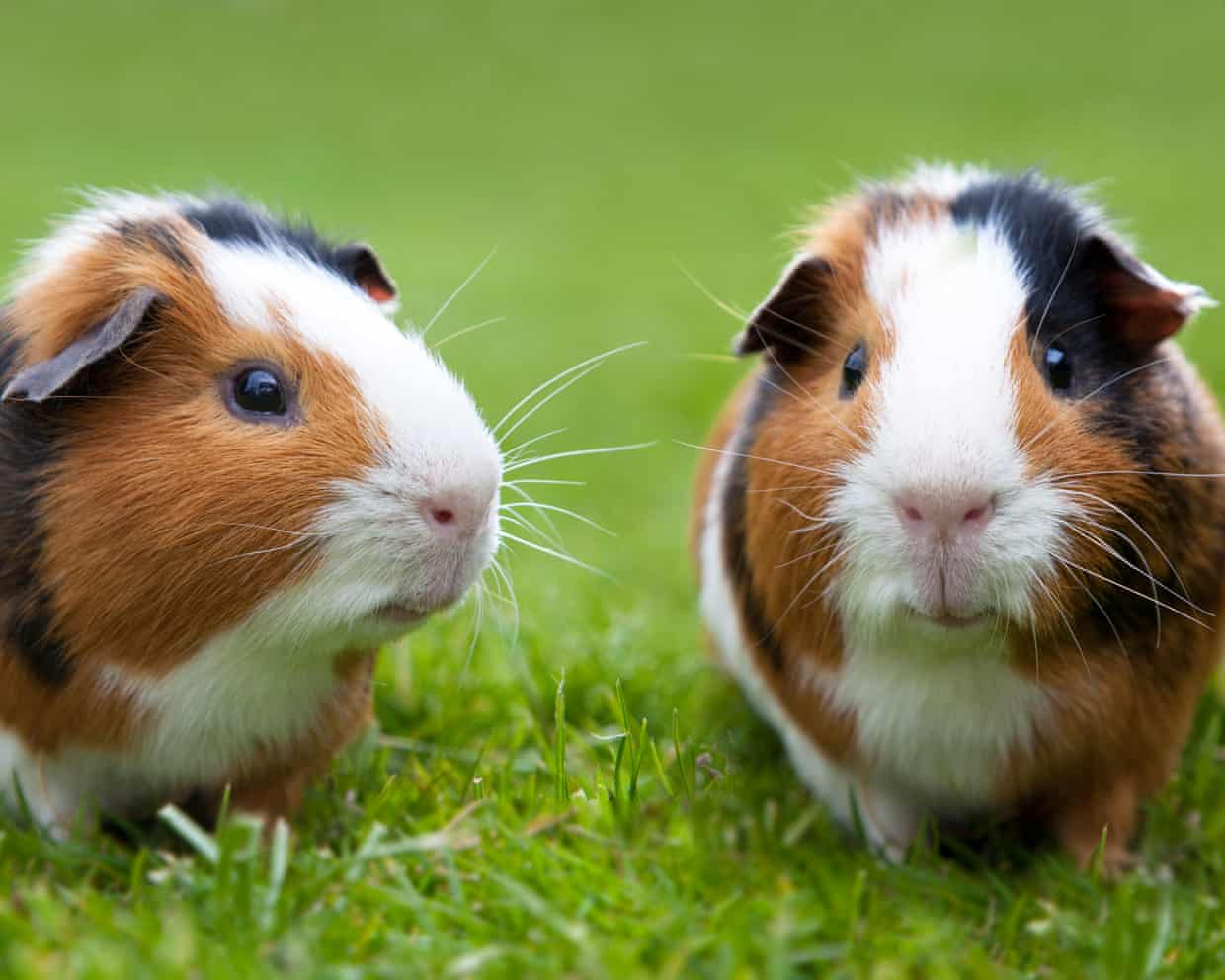
Pets at Home boss says ‘urgent and necessary’ action needed as profits dive

Reserve Bank could raise interest rates as early as May after inflation climbs to 3.8%
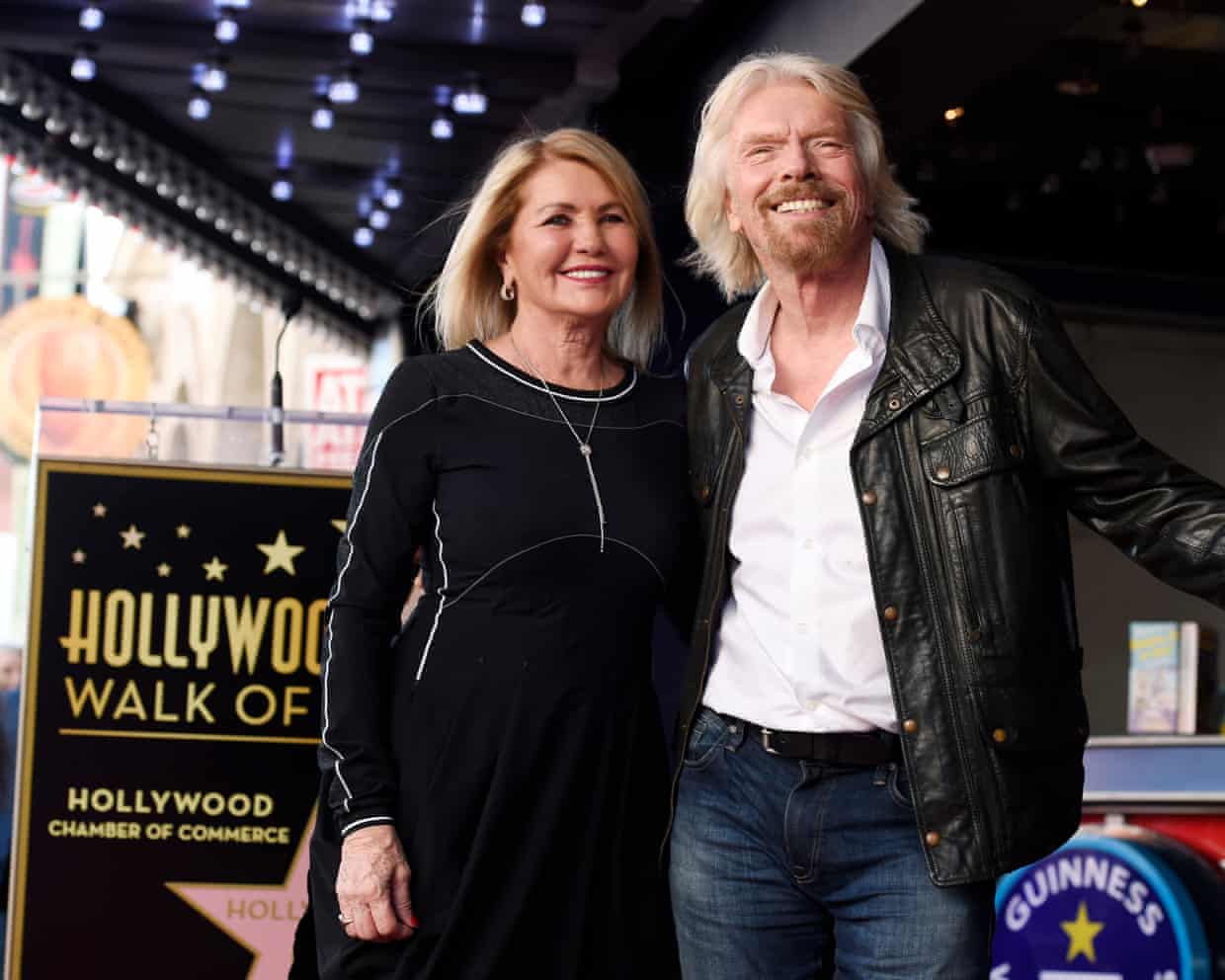
Joan Templeman, wife of billionaire Richard Branson, dies aged 80